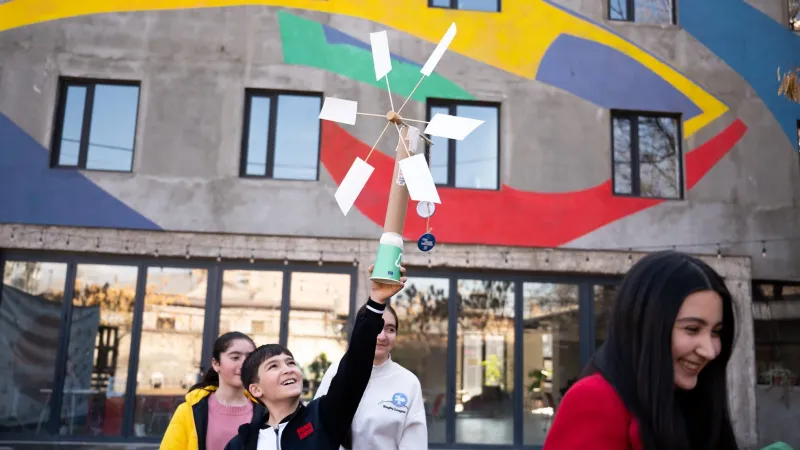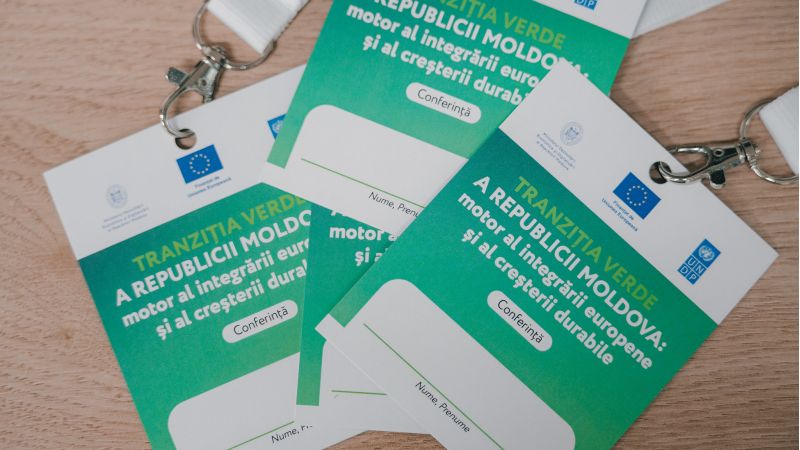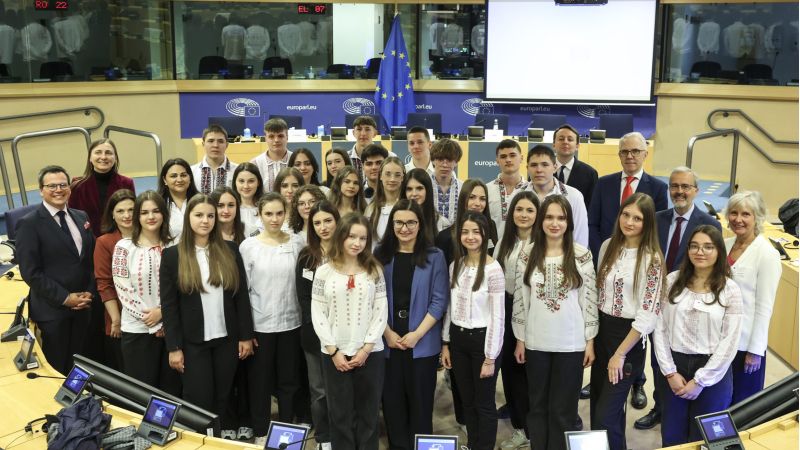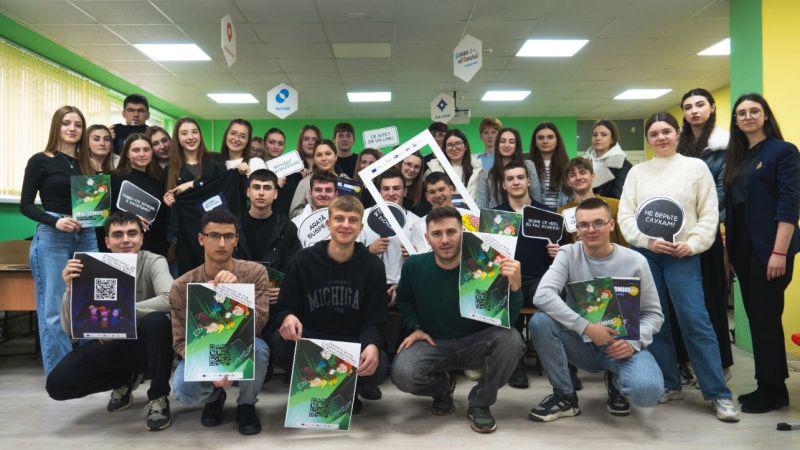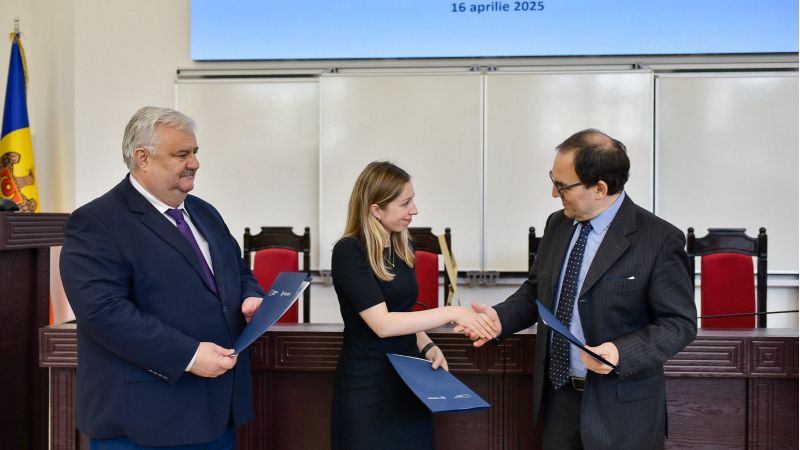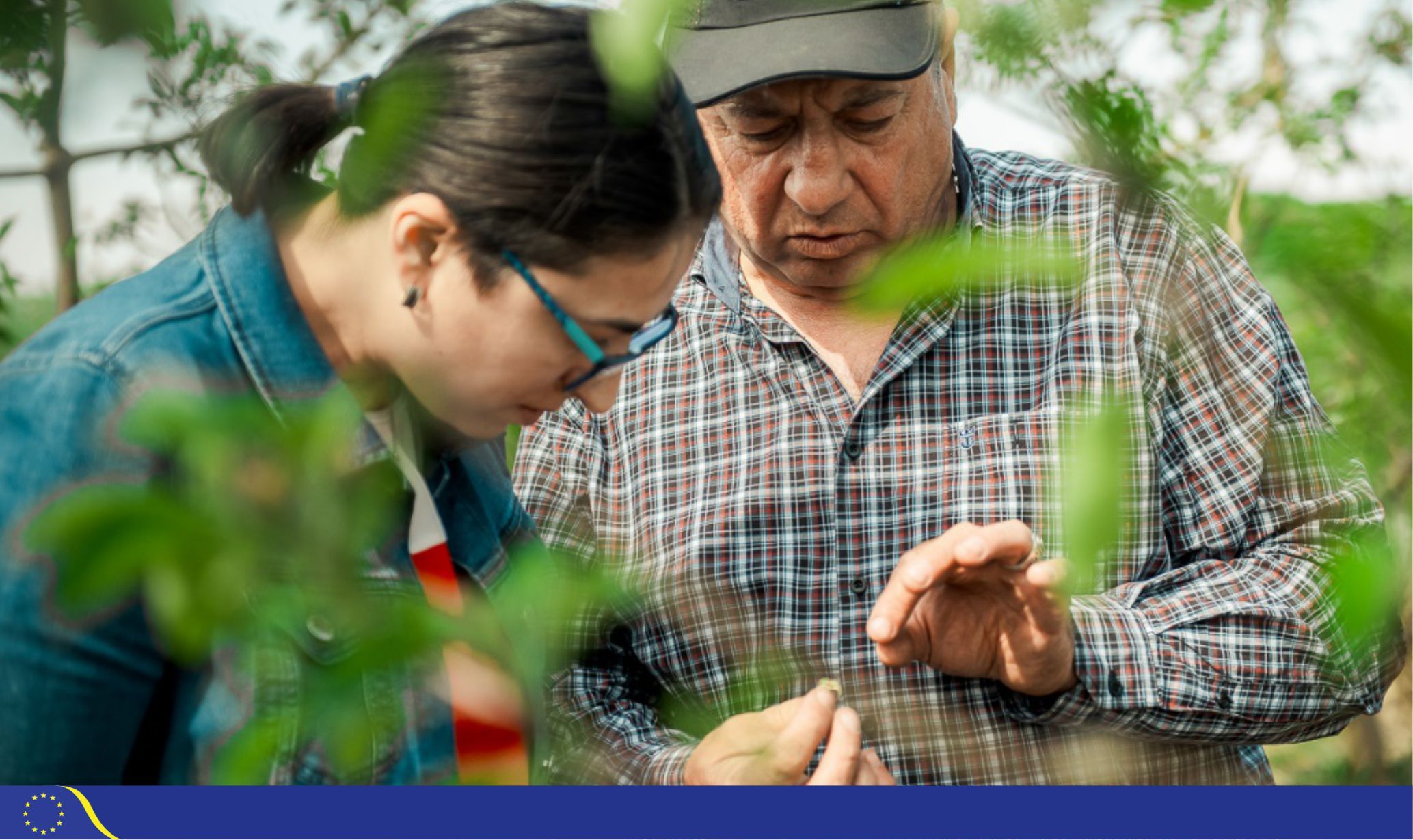
Finanțarea horticulturii nu se oprește pentru coronavirus
Pandemia coronavirusului a determinat o oprire globală devenind una dintre cele mai mari provocări de la cel de-al Doilea Război Mondial. Știrile despre piața produselor din horticultură sunt contradictorii: vânzările de mere în timpul crizei au crescut, însă comerțul internațional de fructe în acest an probabil va fi redus. Cum afectează această situație deciziile de investiții pe termen lung ale fermierilor?
Liviu Burcovschi, un fermier cu vârsta de 55 de ani din nordul Moldovei, și-a format propria opinie: este unul dintre cei care au decis să continue investițiile în gospodăria familiei sale – chiar și după ce Moldova a intrat în blocaj. Prin programul „Livada Moldovei”, UE l-a ajutat să acceseze finanțare pentru mecanizarea lucrărilor în livadă pentru a crește productivitatea muncii
 Liviu a întocmit un proiect investițional în valoare de aproximativ 36.000 EUR din care jumătate a finanțat din resursele proprii. Pentru cealaltă jumătate a ales un împrumut de la banca sa în monedă locală, care este finanțat din resursele Băncii Europene de Investiții (BEI) și vine cu condiții avantajoase. BEI a aprobat proiectul lui Liviu în aprilie 2020, chiar în mijlocul crizei coronavirusului.
Liviu a întocmit un proiect investițional în valoare de aproximativ 36.000 EUR din care jumătate a finanțat din resursele proprii. Pentru cealaltă jumătate a ales un împrumut de la banca sa în monedă locală, care este finanțat din resursele Băncii Europene de Investiții (BEI) și vine cu condiții avantajoase. BEI a aprobat proiectul lui Liviu în aprilie 2020, chiar în mijlocul crizei coronavirusului.
Unsprezece ani în urmă, Liviu a plantat prima livadă de meri pe un teren moștenit de la părinții săi, în satul său natal. A fost comerciant de fructe până în 2016, dar apoi a decis să înregistreze oficial o gospodărie țărănească pentru a transforma o activitate laterală într-o adevărată afacere de familie, specializată în cultivarea fructelor. În prezent, gospodăria țărănească din raionul Ocnița are 9,7 ha măr și 1,9 ha livezi de cireși. Un an în urmă, împreună cu familia sa, Liviu s-a mutat din Chișinău înapoi în satul natal Sauca. El este recunoscător că cei doi nepoți de asemenea s-au mutat, și este sigur că ei vor fi cei care vor urma calea bunicului lor.
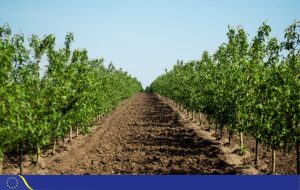 Această investiție a ajutat la crearea a două locuri de muncă permanente, primele din gospodăria sa. Până acum a angajat 15 lucrători sezonieri doar în timpul recoltei.
Această investiție a ajutat la crearea a două locuri de muncă permanente, primele din gospodăria sa. Până acum a angajat 15 lucrători sezonieri doar în timpul recoltei.
Și acesta nu este un caz izolat. În timpul stării de urgență indusă de coronavirus în Republica Moldova, de la mijlocul lui martie până la prima jumătate a lunii mai, 21 de fermieri și întreprinderi mici au solicitat împrumuturi de la programul BEI – “Livada Moldovei”, cu 40% mai mult decât în aceeași perioadă în 2019. Până acum, peste 130 de credite în valoare totală de aproape 35 de milioane EUR au fost alocate în cadrul programului “Livada Moldovei”.
